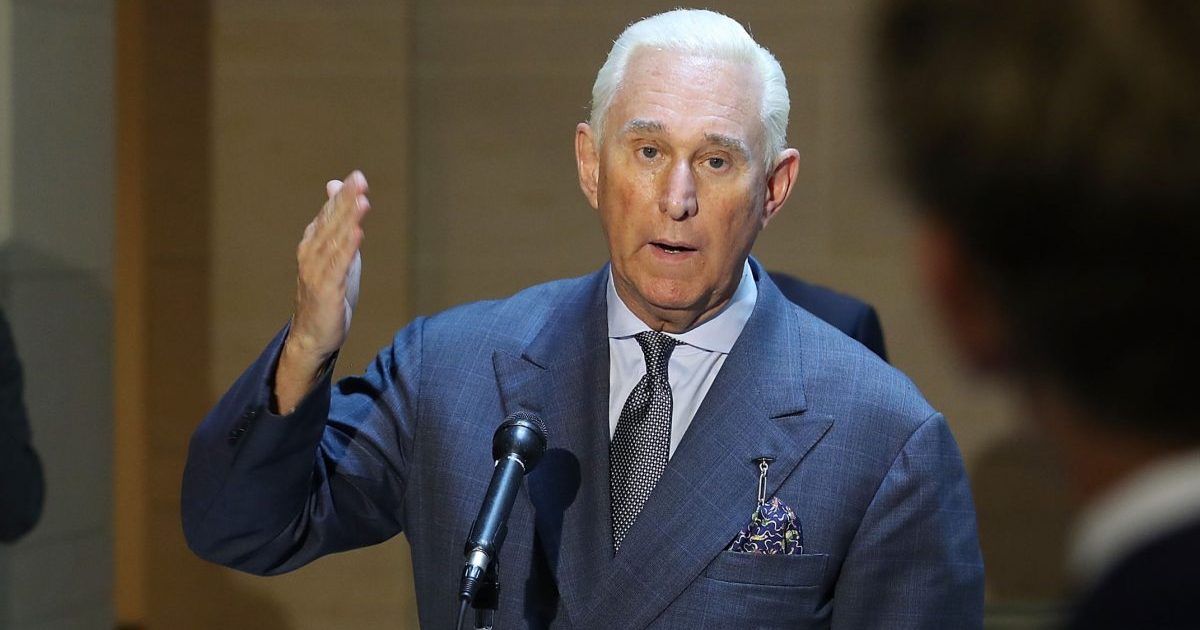
Roger Stone, infamous political operative and long-time confidant of President Donald Trump, wants nothing to do with obliging requests of members on the Senate Judiciary Committee.
The Judiciary Committee, which you may recall from the Brett Kavanaugh hearings, is sharply partisan.
Nonetheless, committee chairman Sen. Chuck Grassley (R-Iowa) recently said that he was interested in passing a bill to protect special counsel Robert Mueller‘s investigation, which is focused on Stone’s connection to WikiLeaks.
Ranking member Sen. Dianne Feinstein (D-Calif.) released a copy of the letter Stone’s attorney Grant Smith sent in response to requests for documents or requests for an interview. Smith said the requests were “far too over broad, far too overreaching, far too wide ranging both in their all-embracing list of persons to whom the request could relate with whom Mr. Stone has communicated over the past three yeas, and the ‘documents concerting’ imprecision of the requests.”
Smith went on to say that his client has by no means been opposed to testifying in public.
“Previously Mr. Stone requested that if any testimony were to be given by Mr. Stone, it be held in public session,” which is something, interestingly, that fired FBI director James Comey argued recently. “The decision by the House Intelligence Committee to proceed in private lent itself to a number of inaccurate leaks and speculation which disserved both my client and the public interest.”
Smith then explained why Stone was invoking his Fifth Amendment right to not provide documents or testimony:
The production of documents that may be responsive to the unreasonably broad scope of the imprecise, fishing expedition, request would unquestionably be a testimonial act protected by the U.S. Constitution. The United States Supreme Court has held that the production of documents is subject to Fifth Amendment protection. In Watkins v. United States, 354 U.S. 178, 187-188 (1957), Chief Justice Warren made the pointed argument that, “the constitutional rights of witnesses will be respected by the Congress as they are in a court of justice…Witnesses cannot be compelled to give evidence against themselves.”
When the Constitutional rights issue was later applied to documents that were the subject of a broad subpoena by an independent counsel, the Court in United States v. Hubbell, 530 U.S. 27 (2000), held that the Constitutional right not to be compelled to give testimony against oneself was applicable to the production of documents that would be testimonial in nature. Whether the documents requested by the Senate Committee exist or not, they are subject to a Fifth Amendment claim.
This reply in response to the request by you, is written with the utmost respect for the Committee and its staff. Mr. Stone’s invocation of his Fifth Amendment privilege must be understood by all to be the assertion of a Constitutional right by an innocent citizen who denounces secrecy.
That’s a long way of saying, Roger Stone is not going to talk to the Judiciary Committee.
[Image via Mark Wilson/Getty Images]